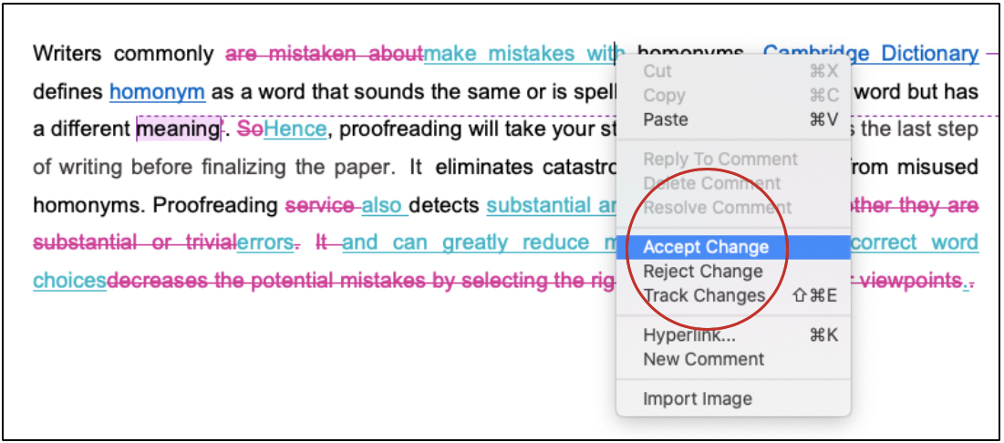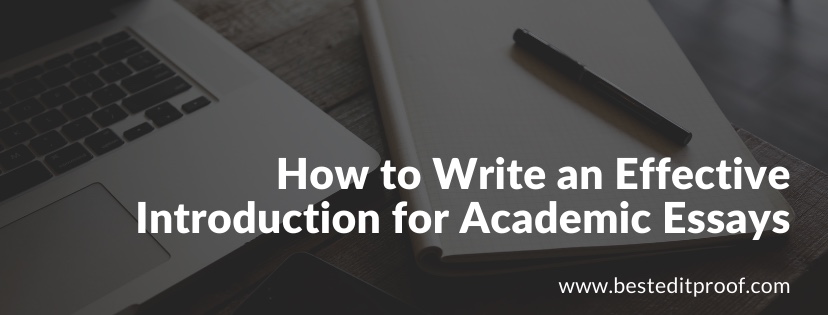Some might say that the only difference between academic and business writing is the fact that the former is practiced by scholars while the latter by professionals. However, when perused closely, one can discern some stark as well as nuanced demarcation between the two. For individuals, such as college graduates, who need to occasionally shift between academic writing and business writing, knowing these differences can help them format their respective documents appropriately.

To the layman, the business writing vs academic writing dilemma might seem not worth much thought. Rather, citing the similarities they share in terms of tone and diction, these two writing styles would appear similar to an extent. One might even say that the only difference between academic and business writing is the fact that the former is practiced by scholars while the latter by professionals.
However, when perused closely, one can discern some stark as well as nuanced demarcation between the two. For individuals, such as college graduates, who need to occasionally shift between academic writing and business writing, knowing these differences can help them format their respective documents appropriately.
Below are enlisted some primary differences between the academic and business writing styles. These differences are primarily based on factors such as the purpose of writing, degree of formality, the intricacy of the language, and the audience.
One of the more apparent distinctions between business writing and academic writing concerns the very motive behind their implementation.
Writers employ the academic writing style when they require to showcase their scholarly capabilities. This writing style finds use in research papers, essays, dissertations, and other scholarly texts mandated by educational institutions.
Writers regularly exercising the academic writing style also enrich their research and learning prowess.
The purpose of academic writing is, thus, to create knowledge-rich texts while exploring the subject matter.
Business writing finds use in drafting professional documents such as business letters, emails, financial reports, and the ilk. Thus, it is also called professional writing.
Business documents prioritize explicitness over the usage of fancy words as they, at times, have an array of subsequent readers. Hence, business writing is relatively work-oriented and commands the readers to definitely and sometimes immediately address a document's contents.
To summarize, business writing emphasizes practicality over theoretical appraisal.
Language is another writing aspect that sets academic writing apart from its professional counterpart.
Both writing styles demand the usage of language that is formal, sophisticated, and exudes respect and seriousness. However, in the case of academic writing, the degree of formality is marginally, and in some cases significantly, higher. And understandably so, since academics, while writing their manuscripts, need to use a relatively higher amount of jargon.
The academic writing process is comparatively more demanding as writers need to refer to a plethora of credible literature to furnish their texts. Business writing, instead, regurgitates a lot of the formal expressions while accommodating factual information in the text. As such, it is the more approachable of the two.
Also, unlike academic writing, business writing does not dogmatically prohibit the use of first and second pronouns.
Complicated sentence structures are another linguistic factor that differentiates academic and professional writing. Although there are no strict statutes regarding the usage of long sentences in professional writing, readers look down upon them. This is because business writing is comparatively more straightforward and less persuasive.
Hence, to the keen eye, language can be an overt identifier of writing style. But at the same time, the uninformed individuals might not observe the same linguistic differences as apparently.
The third factor that segregates academic and professional writing is the document's structure and the formatting requirements.
Academic writing and business writing both abide by different layouts and formatting styles. Academic writers typically arrange their documents as per the IMRaD structure. However, this structure is subject to changes if the teacher or the supervisor states it.
Also, academic writers need to observe the APA, MLA, or Chicago formatting styles for their manuscripts. Failing to do so can welcome some severe repercussions regardless of how well-written the document is.
Business writers, too, employ specific layouts for different professional documents. But these layouts are outrightly different from their academic counterparts.
For instance, while writing business letters, professional writers use the block style for formatting their letters. Semi-block and modified block are the other two formatting styles for business letters.
The intent of any writing, whether it is academic or professional, is to address the readers. Thus, for a significant part, writers need to mold their documents according to the reading requirements of their audience. It is these requirements that further isolate academic writing from professional writing.
Since academic writing is the more complex of the two, writers presume their readers to be well-read and aware of the context of their document. This also implies that academic readers are under less temporal constraints since scholarly texts require ample time to study.
Business documents, conversely, are aimed at readers across all literacy levels. In other words, the writers have a vague idea about their readership.
Also, since a professional environment is competitive and fast-paced, readers are under stricter time constraints.
The rationale behind the business writing vs academic writing narrative primarily pillars itself on the above-mentioned differences. Although these distinctions are not exhaustive, they offer readers a premise on which they can base some more differences.
Academic writing and business writing both intend to inform the readers about their contents comprehensively. However, it is the approach they take and the requisites they fulfill that sets them apart.
How to Paraphrase in Academic Writing: A Comprehensive Guide
Achieve What You Want with Academic Editing and Proofreading
Best Edit & Proof expert editors and proofreaders focus on offering manuscripts with proper tone, content, and style of academic writing, and also provide an upscale editing and proofreading service for you. If you consider our pieces of advice, you will witness a notable increase in the chance for your research manuscript to be accepted by the publishers. We work together as an academic writing style guide by bestowing subject-area editing and proofreading around several categorized writing styles. With the group of our expert editors, you will always find us all set to help you identify the tone and style that your manuscript needs to get a nod from the publishers.

You can also avail of our assistance if you are looking for editors who can format your manuscript, or just check on the particular styles for the formatting task as per the guidelines provided to you, e.g., APA, MLA, or Chicago/Turabian styles. Best Edit & Proof editors and proofreaders provide all sorts of academic writing help, including editing and proofreading services, using our user-friendly website, and a streamlined ordering process.
Visit our order page if you want our subject-area editors or language experts to work on your manuscript to improve its tone and style and give it a perfect academic tone and style through proper editing and proofreading. The process of submitting a paper is very easy and quick. Click here to find out how it works.
Our pricing is based on the type of service you avail of here, be it editing or proofreading. We charge on the basis of the word count of your manuscript that you submit for editing and proofreading and the turnaround time it takes to get it done. If you want to get an instant price quote for your project, copy and paste your document or enter your word count into our pricing calculator.
Contact us to get support with academic editing and proofreading. We have a 24/7 active live chat mode to offer you direct support along with qualified editors to refine and furbish your manuscript.

Follow us on Twitter, LinkedIn, Facebook, Instagram, and Medium.
For more posts, click here.
This article discusses the main differences between business writing and academic writing. To give you an opportunity to practice proofreading, we have left a few spelling, punctuation, or grammatical errors in the text. See if you can spot them! If you spot the errors correctly, you will be entitled to a 10% discount.
How to Determine Variability in a Dataset
14.10.2023
How to Determine Central Tendency
19.02.2023
How to Specify Study Variables in Research Papers?
14.01.2023
Population vs Sample | Sampling Methods for a Dissertation
14.01.2023
How to Ensure the Quality of Academic Writing in a Thesis and Dissertation?
04.12.2022
How to Avoid Anthropomorphism in Your Dissertation?
04.11.2022
How to Write a Research Methodology Section for a Dissertation and Thesis
07.08.2022
How to Write a Theoretical Framework for a Dissertation and Thesis?
05.08.2022
How to Write Literature Review for a Dissertation and Thesis
02.08.2022
How to Write a Dissertation and Thesis Introduction
31.07.2022

In drafting a manuscript, thesis, or dissertation, the discussion section is usually one of the last to be written. Notwithstanding, it is arguably the most important section in a manuscript. Due to its relevance, it is usually the most challenging to write, as it requires top-level expertise. This article seeks to lay bare 5 helpful considerations to make when writing a sound discussion section.
Continue Reading
Writing an impactful introduction is more than just following the rules. If you search on the Internet, you may find stereotypical rules and regulations. However, it is important to understand that the author’s creative sense and ability to comprehend the topic helps in executing an effective introduction. This article discusses the major elements of writing an introduction and how you can write an impactful introduction.
Continue Reading
One of the major struggles that English speakers and writers suffer from is the different variants of American English and British English. Mistakes regarding these variants are very common that even experts get confused at times. Therefore, if you are struggling with these differences, don’t worry — you are not alone. Now, what you can do is gradually learn more about the two English variants. We assembled a comprehensive guide that highlights the basic differences between American and British English.
Continue Reading
For academic achievement, staying ahead of the pack is always a crucial issue. Taking advantage of professional academic editing and proofreading can help you reach your potential and increase chances of your work being published in professional journals. It requires a broad-ranging comprehension to fix a document exceptionally. Therefore, academic editing and proofreading are a critical part of the writing process.
Continue Reading
Understanding the common types of plagiarism will help us to comprehend the scope of the question and answer the question of ‘‘what is plagiarism’’. Some common examples of plagiarism are copying texts or ideas without referencing, incorrect referencing, without referring to someone else's sentence structure even if you change words.
Continue Reading